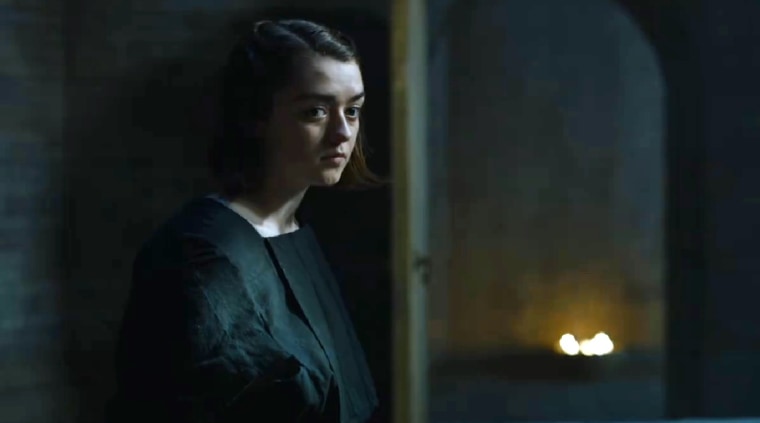"Game of Thrones" fans are all abuzz over the shocking final scene of this week's episode in the sex-swords-and-sorcery TV series (spoiler alert!), and even author George R.R. Martin was pensive about HBO's departure from his books' plot line. But the show also explored a familiar subject: deadly substances and their uses.
Poison has popped up repeatedly in the fictional saga — for example, in the painful, choking death of King Joffrey, due to the effect of a concoction known as "the Strangler." In a later episode, a slower-acting poison laid low a musclebound knight known as the Mountain — and set him up for what many suspect will be a head transplant (or is that a body transplant?).
This time, there's a more poignant motivation for the use of poison: to provide the "gift" of death to those who can no longer endure life. This lethal liquid is as clear as water, and causes its victims to pass away painlessly. It's as close as "Game of Thrones" comes to the debate over euthanasia — a debate that goes back to ancient Greece.
The best-known case from those days focuses on the philosopher Socrates, who drank a cup of poisonous hemlock to avoid suffering a more painful punishment for his alleged impiety. Even with hemlock, suicide wasn't painless. Although Plato's account makes it sound as if his mentor died stoically, experts say the nerve-disrupting poison in hemlock plants (a nicotine-like substance known as coniine) would have caused suffocation and convulsions.
A better analog to the poison used in Braavos' House of Black and White is sodium thiopental, which is today's drug of choice for euthanasia and executions. A little bit of the barbiturate supposedly acts as a "truth serum," calming anxiety and dulling pain. A little more serves as an anesthetic. A lot of it shuts down the nervous system for good.
Sodium thiopental has been in the news recently: There's a nationwide shortage of the drug, in part because of the controversy over its use in carrying out death penalties. Will Dzhokhar Tsarnaev, who was given the death penalty last week after his conviction in the Boston Marathon bombing case, ever get that lethal dose? That real-life saga is likely to take far longer to play out than "Game of Thrones."
For yet another angle on the poisons of "Game of Thrones," check out this spoiler-filled recap from Vanity Fair.
IN-DEPTH
- 'Game of Thrones' Poses a Burning Question
- How Winter Came ... and Wiped Out 'Dragons'
- The Fact and Fiction of Head Transplants
- 'Game of Thrones' Greyscale vs. Real Diseases
SOCIAL
Got scientific questions about scenes from "Game of Thrones"? Flag them with the Twitter hashtag #GOTscience.

